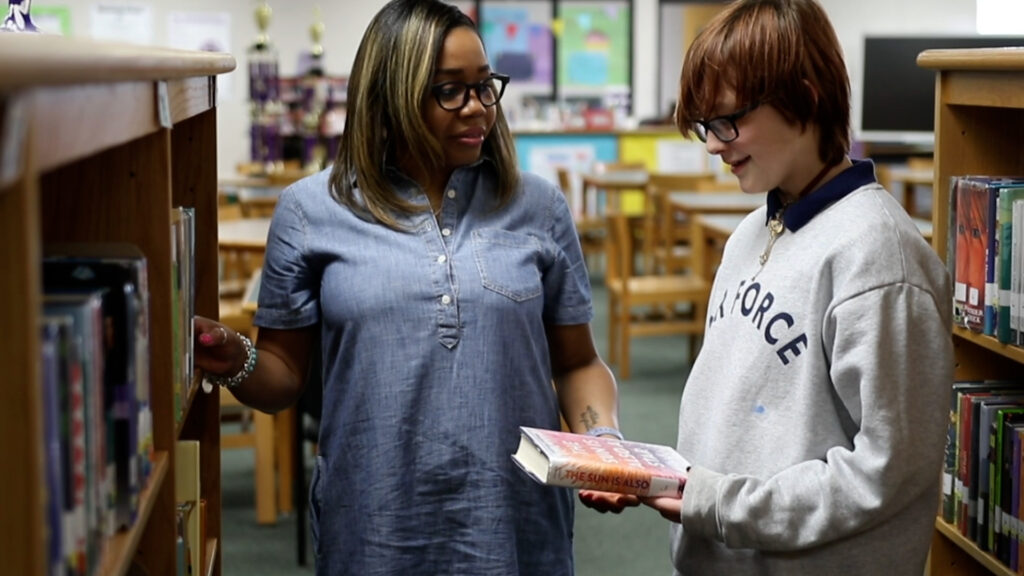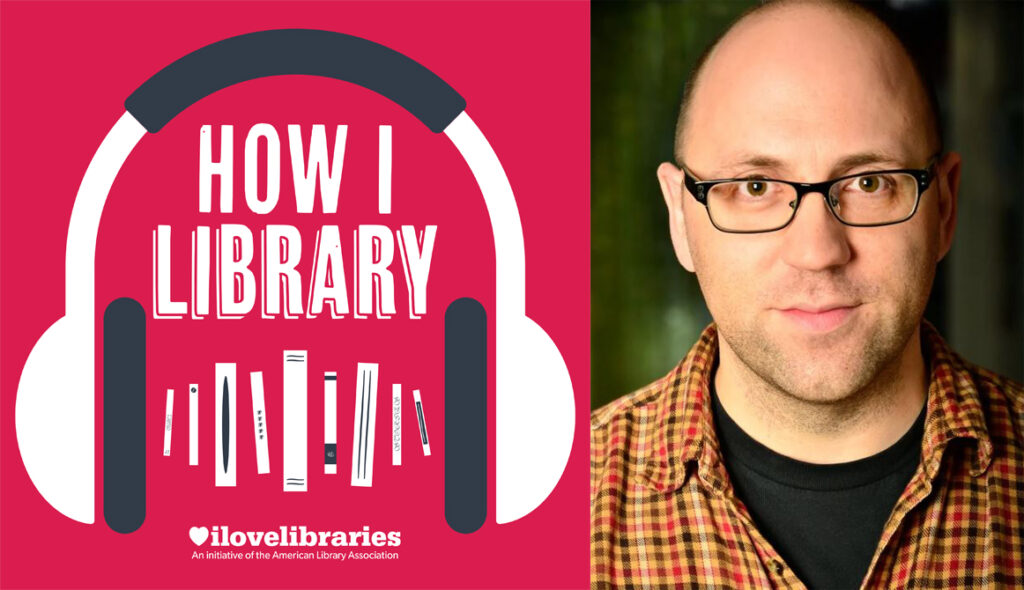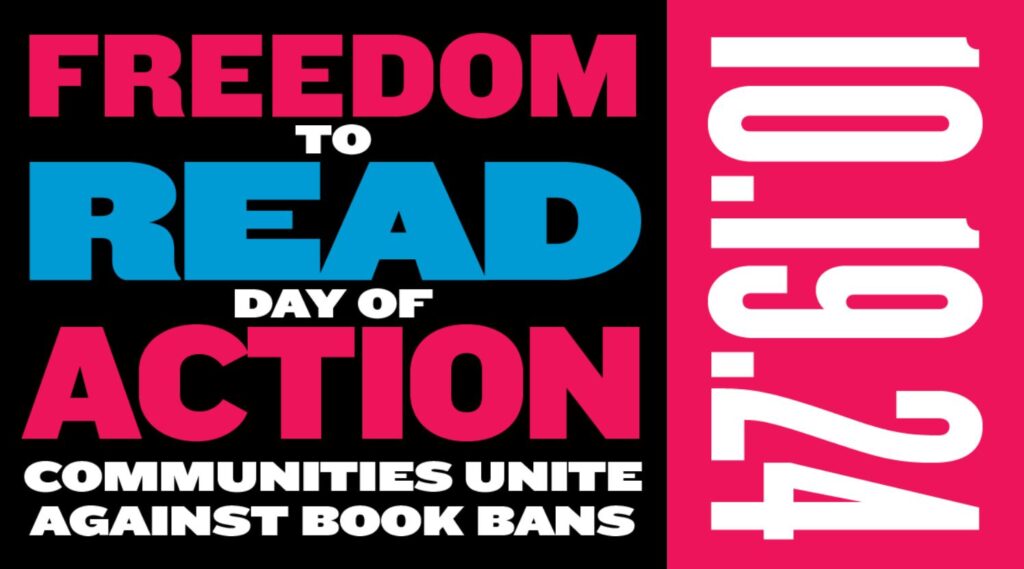Schools with a strong school library program—and a certified school librarian—ensure their students have the best chance to succeed. But in too many schools, school library budgets and school librarian positions are being cut. This puts our children’s education and workforce readiness at peril.
How does the school library support your child?
- The school librarian can provide you with strategies to help your child select print and digital resources and discover new ideas on topics important to your family.
- The school library is a great place for your child to share ideas and thoughts with their peers and the global community. The school library can show you how this happens online and face to face.
- The school librarian can demonstrate safe, age-appropriate strategies that encourage your child to create knowledge as a writer, artist. storyteller, and digital citizen.
- The school librarian can suggest new books and resources to stretch your child's boundaries and help them grow as a learner.
Why school libraries?
- The school library is a unique and essential part of a learning community. As a destination for on-site and virtual personalized learning, the school library is a vital connection between school and home. As the leader of this space and its functions, the school librarian ensures that the school library environment provides all members of the school community access to information and technology, connecting learning to real-world events. By providing access to an array of well-managed resources, school librarians enable academic knowledge to be linked to deep understanding.
- Qualified school librarians lead effective school libraries. As they guide organizational and personal change, effective school librarians model, promote, and foster inquiry learning in adequately staffed and resourced school libraries. Qualified school librarians have been educated and certified to perform interlinked, interdisciplinary, and cross-cutting roles as instructional leaders, program administrators, educators, collaborative partners, and information specialists.
- Learners should be prepared for college, career, and life. Committed to inclusion and equity, effective school librarians use evidence to determine what works, for whom and under what conditions for each learner; complemented by community engagement and innovative leadership, school librarians improve all learners’ opportunities for success. This success empowers learners to persist in inquiry, advanced study, enriching professional work, and community participation through continuous improvement within and beyond the school building and school day.
- Reading is the core of personal and academic competency. In the school library, learners engage with relevant information resources and digital learning opportunities in a culture of reading. School librarians initiate and elevate motivational reading initiatives by using story and personal narrative to engage learners. School librarians curate current digital and print materials and technology to provide access to high-quality reading materials that encourage learners, educators, and families to become lifelong learners and readers.
- Intellectual freedom is every learner’s right. Learners have the freedom to speak and hear what others have to say, rather than allowing others to control their access to ideas and information; the school librarian’s responsibility is to develop these dispositions in learners, educators, and all other members of the learning community.
- Information technologies must be appropriately integrated and equitably available. Although information technology is woven into almost every aspect of learning and life, not every learner and educator has equitable access to up-to-date, appropriate technology and connectivity. An effective school library bridges digital and socioeconomic divides to affect information technology access and skill.
Why school librarians?
More than 60 education and library research studies have produced clear evidence that school library programs staffed by qualified school librarians have a positive impact on student academic achievement. These studies clearly demonstrate that strong school library programs help all students do better academically, even when other school variables are considered. Students who don’t speak English at home can be among those who benefit the most.
Certified school librarians make the whole school more effective.
-
- They teach students how to learn and help teachers drive student success.
- School librarians work with every student in the school, teaching them to think critically, providing the resources and support learners need in school and beyond, and nurturing their creativity.
- They are essential partners for all teachers, providing print and digital materials that meet diverse needs and collaborating to deepen student learning.
- They are leaders in the school, helping to develop curriculum and representing the learning needs of all students and teachers.
Developed as an initiative of 2018-2019 American Library Association President Loida Garcia-Febo and her Diversity Advisory Board, this video is part of a series created to give visibility to a diverse representation of library workers, champions, and patrons and to help deepen the understanding of the principles of equity, diversity, and inclusion in action in our nation’s libraries. Erika Long, school librarian at Thurgood Marshall Middle School in Nashville, Tennessee, provides students a space that is equitable, diverse, and inclusive and helps them succeed in the library and beyond.
Learn more about the importance of school libraries and librarians—and how to become an advocate for your school library—here.



